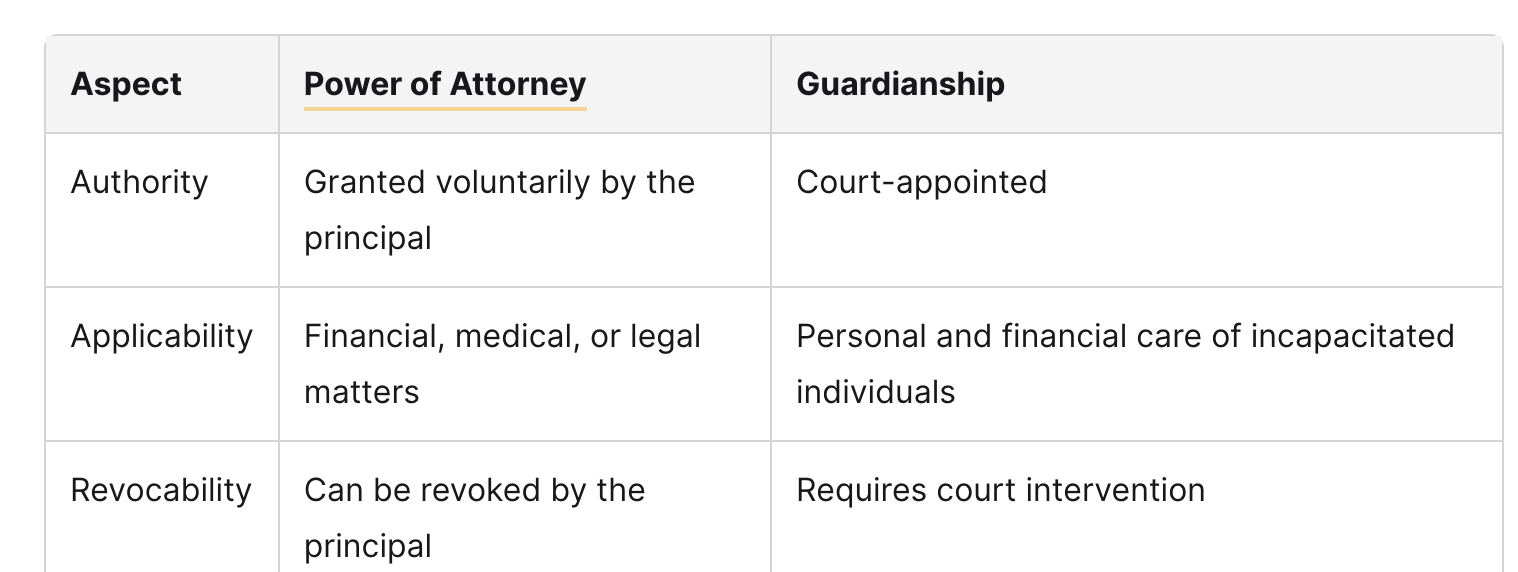A Power of Attorney (POA) is a crucial legal document that grants one person (the agent or attorney-in-fact) the authority to act on behalf of another person (the principal) in specific or broad matters.
In the context of estate planning, a POA can ensure that financial, medical, or legal decisions are made in the principal's best interest if they are unable to act for themselves.
This guide explores how to obtain a Power of Attorney in India, the types available, legal requirements, and its importance in estate planning.
What Is A Power Of Attorney?

A Power of Attorney is a legally binding document that empowers an agent to act on behalf of the principal.
The scope of authority can range from specific tasks, such as selling property, to broad powers over financial or medical decisions.
Why Do You Need A Power Of Attorney?

- Managing Financial Affairs
- Selling property, managing investments, or handling bank accounts.
- Medical Decisions
- Appointing someone to make healthcare decisions if the principal is incapacitated.
- Estate Planning
- Ensuring seamless management of assets and obligations.
Types Of Power Of Attorney In India

- General Power of Attorney (GPA)
- Grants broad authority to the agent for various financial or legal matters.
- Suitable for tasks like managing property or conducting business transactions.
- Special or Limited Power of Attorney (SPA)
- Grants authority for specific tasks, such as selling a property or signing documents.
- Expires once the task is completed.
- Durable Power of Attorney
- Remains valid even if the principal becomes mentally incapacitated.
- Medical Power of Attorney
- Grants authority to make healthcare and medical-related decisions.
- Springing Power of Attorney
- Becomes effective only upon the occurrence of a specific event, such as the principal's incapacity.
Steps To Obtain A Power Of Attorney In India

Step 1: Identify the Purpose of the POA
Determine whether the POA is for general or specific tasks, such as managing financial transactions, selling property, or making medical decisions.
Step 2: Choose a Trusted Agent
- The agent should be someone reliable, trustworthy, and capable of making decisions in the principal's best interests.
- Agents can be family members, close friends, or legal professionals.
Step 3: Draft the Power of Attorney Document
- Use a professional legal expert or online templates to ensure all necessary clauses are included.
- Include details like:
- Name and address of the principal and agent.
- Powers granted to the agent.
- Duration and limitations of the authority.
Step 4: Fulfill Legal Requirements
- The POA document must be signed by the principal in the presence of at least two witnesses.
- Include proof of identity (eg, voter ID, passport) and address proof for both the principal and the agent.
Step 5: Notarise or Register the POA
- Notary Public: A POA used for general purposes can be notarised by a notary public.
- Sub-Registrar's Office: A POA involving immovable property must be registered under the Indian Registration Act and may require stamp duty payment.
Legal Requirements For A Valid POA
- Principal’s Mental Competency
- The principal must be a mentally competent adult at the time of granting the POA.
- Proper Drafting
- The document must clearly define the powers granted to the agent.
- Witnesses
- The POA must be signed in the presence of at least two Witnesses who also sign the document.
- Registration for Immovable Property
- As per the Indian Registration Act, POAs for property transactions must be registered with the local Sub-Registrar.
Documents Required For A Power Of Attorney
- Identity Proof (eg, Voter ID, Passport, Aadhaar Card)
- Address Proof (eg, Utility Bills, Rent Agreement)
- Photographs of the principal, agent, and witnesses.
- Stamp Paper (value determined by state laws).
Costs Involved In Getting A POA
- Stamp Duty: Varies depending on the state and purpose of the POA.
- Registration Fees: Applicable for registering POAs involving property transactions.
- Legal Fees: For drafting and notarising the POA document.
How To Register A POA In India
- Visit the local Sub-Registrar's Office.
- Submit the POA document along with required documents and fees.
- Ensure the principal, agent, and witnesses are present during registration.
Advantages Of A Power Of Attorney

- Convenience
- Enables smooth management of financial and legal affairs.
- Continuity
- Durable POAs ensure that decisions can still be made if the principal becomes incapacitated.
- Flexibility
- POAs can be broad or limited, depending on the principal's needs.
Disadvantages Of A Power Of Attorney
- Risk of Misuse
- An untrustworthy agent could misuse the powers granted.
- Irrevocability
- Some POAs are difficult to revoke, especially if disputes arise.
Power Of Attorney vs Guardianship

Common Uses Of Power Of Attorney
- Real Estate Transactions
- Authorising an agent to sell or manage property.
- Financial Management
- Managing investments, paying bills, or handling bank accounts.
- Medical Decisions
- Making healthcare choices in the principal's absence or incapacity.
- Business Operations
- Granting authority to an agent to sign contracts or manage business dealings.
How To Revoke A Power Of Attorney
- Draft a Revocation of Power of Attorney document.
- Notify the agent in writing.
- Inform all concerned parties, such as banks and financial institutions.
- Register the revocation at the Sub-Registrar's Office if the POA was registered.
Key Considerations When Choosing An Agent
- Trustworthiness
- Ensure the agent has the principal’s best interests at heart.
- Capability
- The agent should be competent to handle the responsibilities.
- Availability
- Choose someone who can dedicate the required time and effort.
Alternatives To Power Of Attorney
- Joint Bank Accounts
- Allows shared financial management without formal POA documentation.
- Trusts
- A legal arrangement to manage assets for beneficiaries.
Frequently Asked Questions
Is a Power of Attorney Valid After the Principal’s Death?
No, a POA becomes void upon the principal's death.
Can a POA Be Challenged in Court?
Yes, if there are concerns of undue influence or fraud, the POA can be contested.
Do All POAs Need to Be Registered?
POAs involving immovable property must be registered; others can be notarised.
The Bottom Line: How Yellow Can Help

Obtaining a Power of Attorney is an essential step in estate planning, offering flexibility and security in managing personal, financial, and medical matters.
By understanding the types, legal requirements, and registration process, individuals can ensure their affairs are handled efficiently and responsibly.
Whether for temporary tasks or long-term planning, a Power of Attorney empowers you to safeguard your interests and provide peace of mind for your loved ones.
At Yellow, we take care of all your estate planning requirements, including making a Power of Attorney. Our team of estate planners have more than 50 years of experience and can help you through every step along the way.




